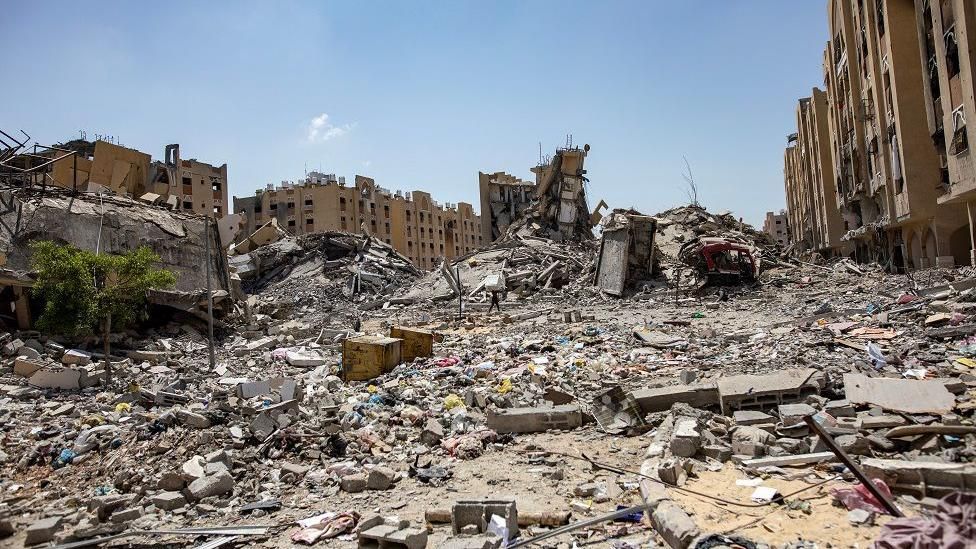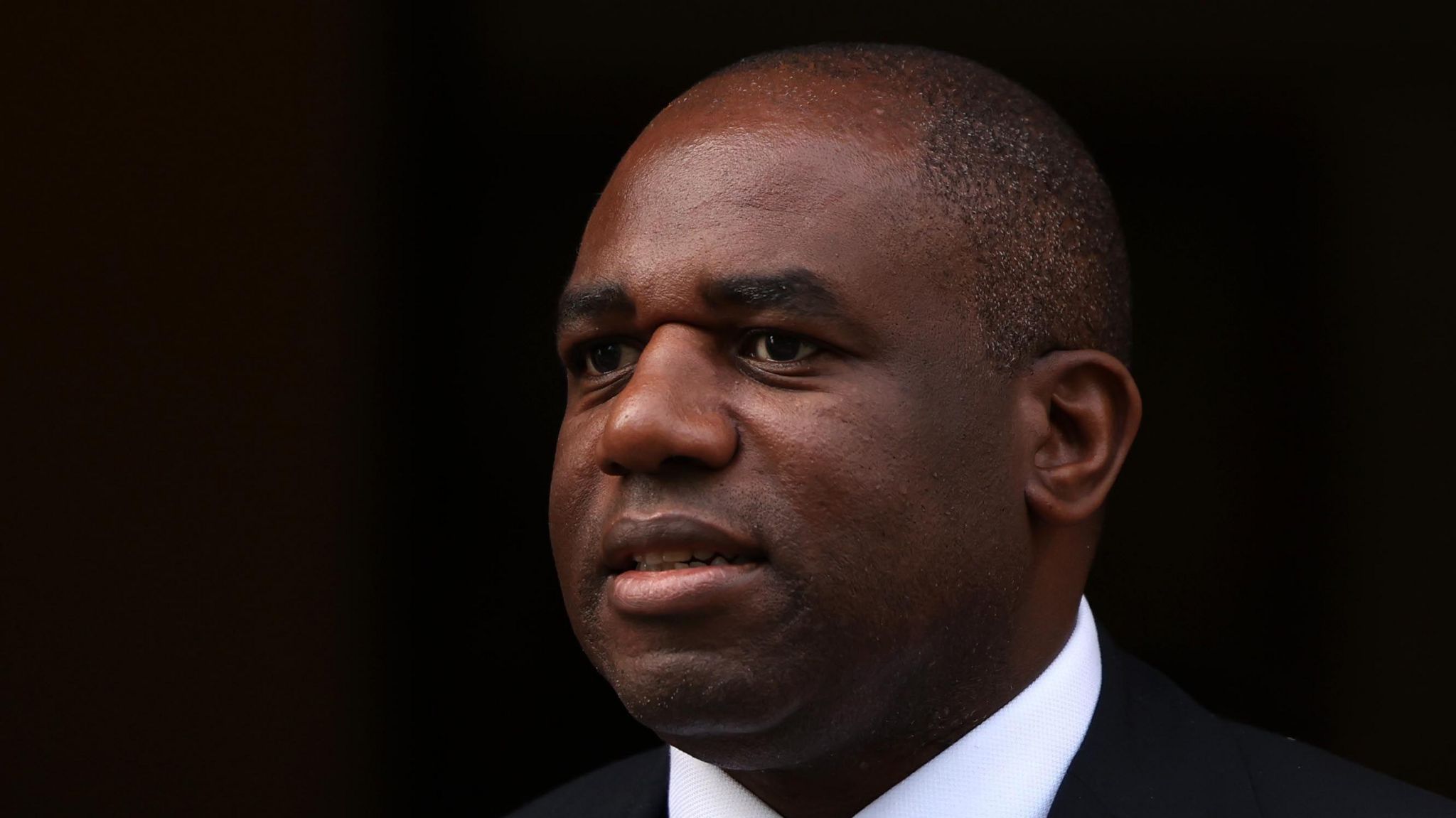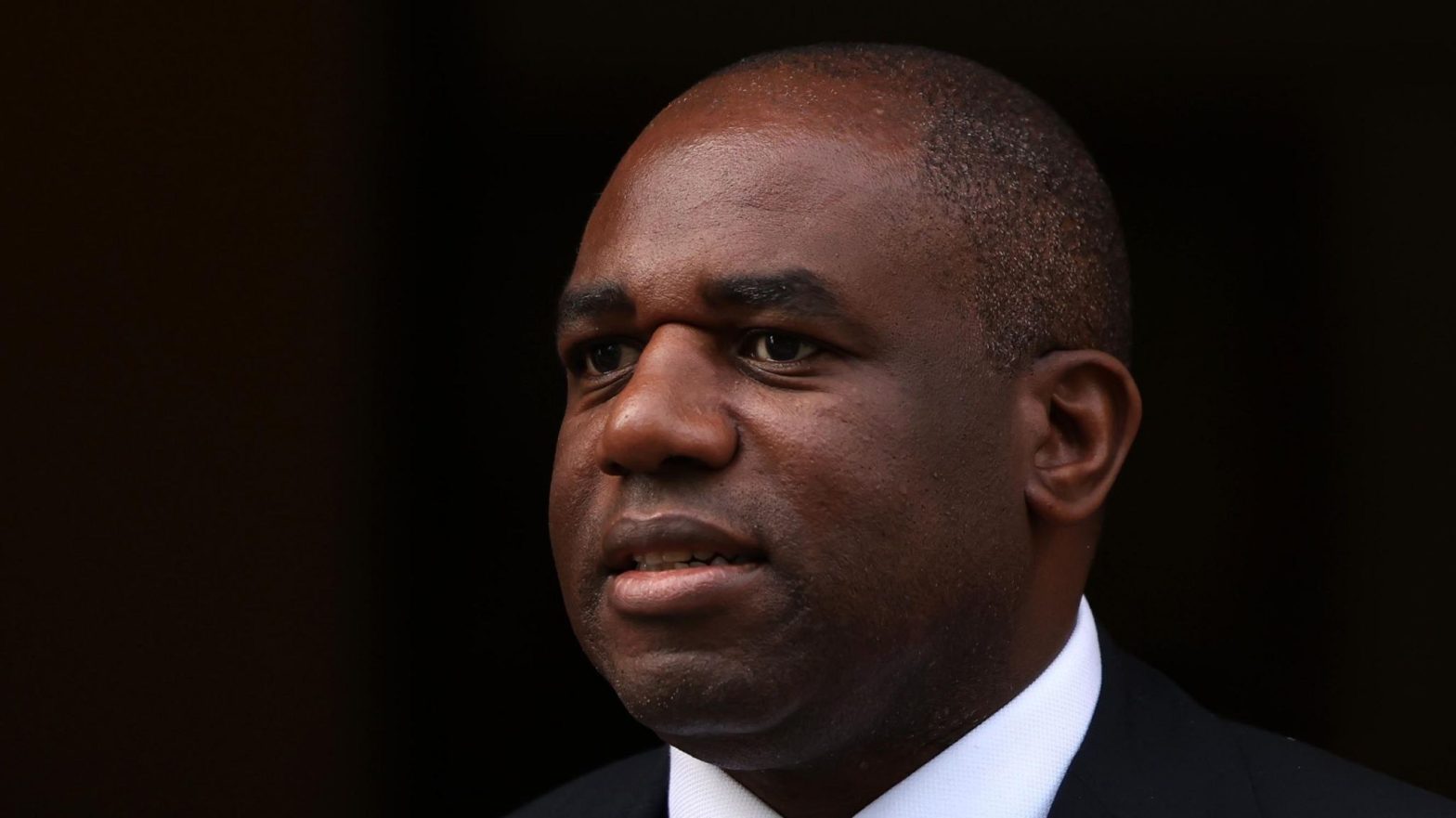UK suspends some arms exports to Israel

The UK has suspended some arms sales to Israel, saying there is a “clear risk” the equipment could be used to commit serious violations of international law.
Foreign Secretary David Lammy said the UK would be suspending 30 out of 350 arms export licences to Israel, affecting equipment such as parts for fighter jets, helicopters and drones.
An Israeli minister told the BBC that the decision sent the “wrong message” and was “disappointing”, but human rights group Amnesty International UK called the suspension “too limited”.
Mr Lammy said the UK continued to support Israel’s right to defend itself, and this did not amount to an arms embargo.
-
Netanyahu asks ‘forgiveness’ over hostage deaths as protests continue
-
8 hours ago
-
-
Netanyahu not doing enough to free Gaza hostages, says Biden
-
15 hours ago
-
-
Where does Israel get its weapons?
-
15 April
-
Speaking to Radio 4, Israel’s minister for diaspora affairs, Amichai Chikli, said the decision had come “at a very sensitive moment” when Israelis were burying six people “murdered in Hamas tunnels”.
“I think we need to combat terrorism together,” he told the World Tonight programme. “The fight against Isis [the Islamic State group], and al-Qaeda and Hamas, it’s the same war between the Western civilisation and radical Islam.
“The threat that is coming from Hamas is also an inner threat that you are facing in the streets of the UK.”
Israeli Foreign Minister Israel Katz said in response to the decision that Israel operated according to international law.
Writing on social media, the chief rabbi, Sir Ephraim Mirvis, said the move “beggars belief” and “feeds the falsehood that Israel is in breach of International Humanitarian Law”.
“Sadly, this announcement will serve to encourage our shared enemies,” he added.
Chief executive of Amnesty International UK, Sacha Deshmukh, criticised the restrictions as “too limited and riddled with loopholes”.
The non-profit organisation has continuously called for a ceasefire and to allow humanitarian aid into Gaza.
“Today’s decision means that while ministers apparently accept that Israel may be committing war crimes in Gaza, [the government] is nevertheless continuing to risk complicity in war crimes, apartheid – and possible genocide – by Israeli forces in Gaza,” he said.
Western governments have been coming under growing pressure to halt arms sales to Israel over how it is waging the war against Hamas in the Gaza Strip.
The foreign secretary said many MPs, lawyers and international organisations had raised concerns about British arms export licensing to Israel.
He immediately sought a review of British arms exports to Israel after the Labour government took office in July, Mr Lammy added.
He said the review did not and “could not arbitrate on whether or not Israel has breached international humanitarian law” – and this was “not a determination of innocence or guilt”.
But he said the government had its own legal duty to review all exports licences.
Mr Lammy said: “The assessment I have received leaves me unable to conclude anything other than that for certain UK arms exports to Israel, there does exist a clear risk they might be used to commit or facilitate a serious violation on international humanitarian law.”
He said the partial ban covered items “which could be used in the current conflict in Gaza”.
In a written summary of its decision, the government cited Israel’s approach to Gaza aid and treatment of detainees as key factors in its decision.
It did not explain how the suspended licences would affect these concerns.
But parts made in the UK for the F35 fighters that Israel is using to strike targets in Gaza will not be included in the UK’s ban because the planes are manufactured as part of a global programme.
The decision is more significant politically than militarily – UK arms sales to Israel are small, just 1% of the country’s defence imports.
The US is by far the biggest supplier of arms to Israel, accounting for 69% of its imports of major conventional arms between 2019 and 2023, according to the Stockholm International Peace Research Institute.
But it is still striking that one of Israel’s closest allies has judged there is a clear risk the country may use some of its arms exports to violate international humanitarian law.
The announcement may come as no surprise to the government of Israel – it has long been flagged – but it will still hurt.

The discussion about suspending arms sales began under the last Conservative government but it came to a head under the new Labour administration.
Labour said it had not changed its position on supporting Israel’s security, which it describes as “solid” and “unyielding”.
But this marks the third time since Labour took power in July that they have deviated from the previous Tory government’s approach.
Two weeks into government, Labour announced it would resume funding UNRWA, the UN’s agency for Palestinian refugees following a review of alleged links between its staff and terror groups.
Days later Labour announced it was dropping plans to challenge the right of the International Criminal Court (ICC) to seek an arrest warrant for Israeli Prime Minister Benjamin Netanyahu.
The Labour government has called for an immediate ceasefire in the war between Israel and Hamas, the release of all hostages and an increase in the amount of aid to civilians in Gaza.
Some backbench Labour MPs have been urging Prime Minister Keir Starmer to go further and ban British arms sales to Israel completely.
Labour lost a number of former strongholds to independent candidates campaigning on pro-Palestinian platforms in the general election.
Already the government’s critics are saying the suspension has not gone far enough.
Liberal Democrat foreign affairs spokesperson Layla Moran said her party would “carefully scrutinise” the details of the announcement, “including those export licences which the government has not suspended”.
“We are concerned that the decision is made solely on risk of use in Gaza and not the West Bank,” she added.
Green MP Ellie Chowns asked why so many licences were exempt from the suspension.
“I am very concerned that the government is not consistently applying the principle that there is a clear risk of UK licensed weapons being used in breach of international humanitarian law,” she said.
But Conservative MPs – including the shadow foreign secretary Andrew Mitchell – have criticised the decision.
Mr Mitchell said the move had “all the appearance of something designed to satisfy Labour’s backbenches, while at the same time not offending Israel, an ally in the Middle East”.
“I fear it will fail on both counts,” he added.
The Campaign Against Arms Trade says that since 2008, the UK has granted arms export licences to Israel worth £574m ($727m) in total.
Research by Parliament shows the value of licences granted has declined from £42m in 2022 to £18.2m in 2023.
Related Topics
- Israel
Published at Tue, 03 Sep 2024 02:56:35 +0000
